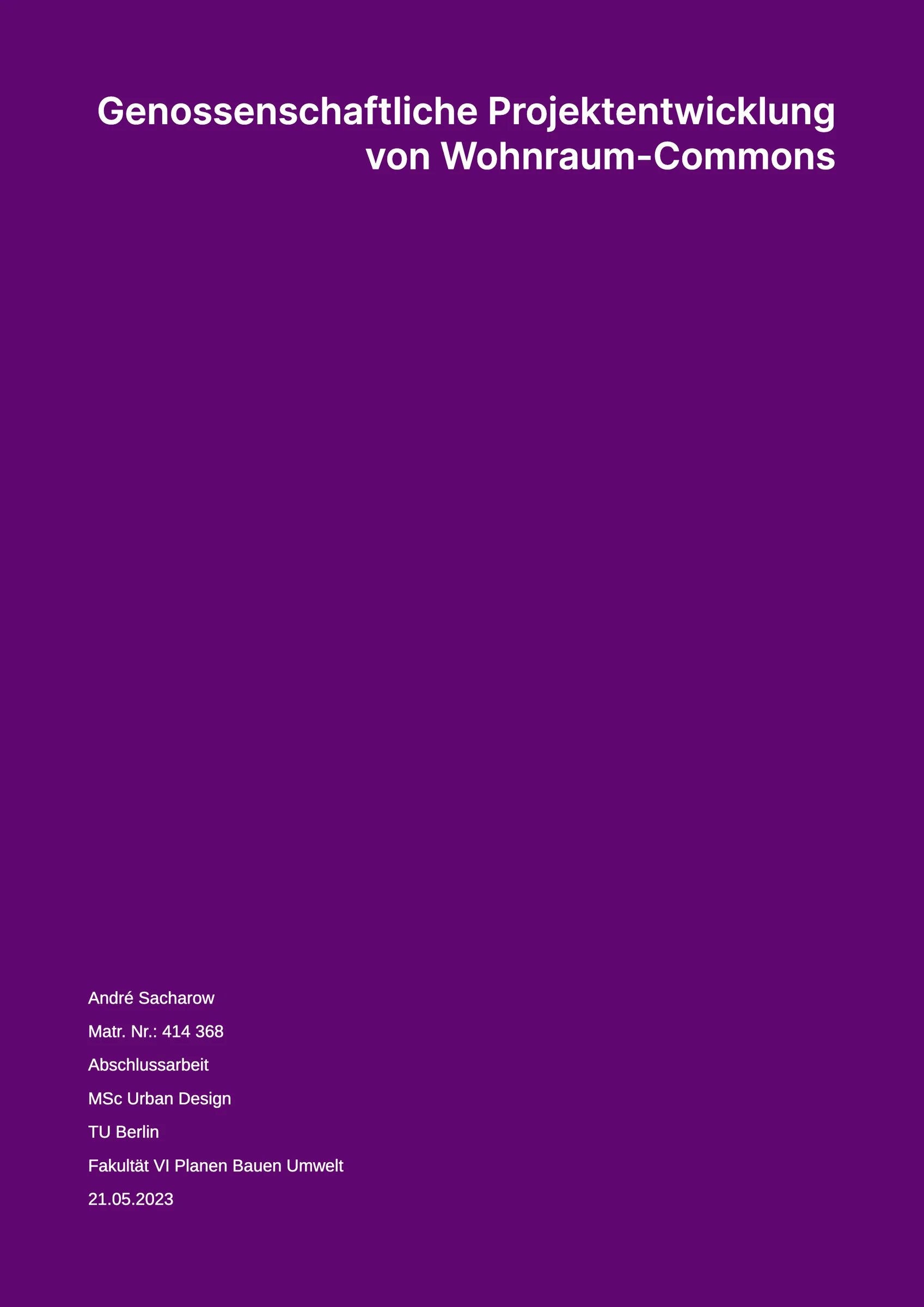AI-Generated Summary
Context and Overview
The resource titled "Genossenschaftliche Projektentwicklung von Wohnraum-Commons," published by TU Berlin, focuses on the cooperative development of housing commons. The author, André Sacharow, presents a transdisciplinary study investigating the scalable development of residential commons through professional cooperative project development. This work analyzes the intricate relationship between self-organized commons and professional project development, emphasizing the relevance of commons in addressing contemporary housing crises.
Key Concepts
The study highlights that the act of real estate development not only produces physical spaces but also socio-economic relationships. Commons are defined as shared spaces and practices that communities utilize to solve problems independently. They can manifest in various urban phenomena, such as public space appropriation and neighborhood cafés, making them vital in the context of the urban housing crisis.
Research Findings
A quantitative field analysis was conducted on cooperative project development in Berlin, identifying three types of cooperatives: traditional cooperatives, young cooperatives, and umbrella cooperatives. Each type was examined through case studies based on expert interviews and document analyses, illustrating the structural elements of cooperative project development and the recurring patterns of commons practices.
Methodology and Approach
The research employs a mixed-methods approach, combining qualitative field studies with quantitative analysis. It aims to uncover best practices and instruments that can encourage the development of commons-sensitive real estate and cooperative sciences for urban practitioners, emphasizing the need for effective governance and management systems tailored to local contexts.
Urban Context
The work addresses the significant role of housing cooperatives in Germany, which own around 9% of the country's apartments, equating to approximately 2.2 million units. The historical context reveals that cooperatives emerged in the 19th century as a response to industrialization, aiming to provide affordable housing solutions. The study notes that the cooperative model is often seen as a natural fit for commons due to its social and communal foundations.
Sustainable Development
The research underscores the importance of commons, particularly in the context of sustainable urban development. It argues for the necessity of reconfiguring relationships between built environments and their users, focusing on decommodification of housing to create socially just and resilient cities. The analysis suggests that commons can offer transformative solutions to simultaneous crises, including social inequality and climate change.
Case Studies
The document delves into several case studies that illustrate the innovative practices of cooperative project development. For instance, it discusses a traditional cooperative, the Beamten-Wohnungs-Verein zu Köpenick, which has successfully expanded its housing stock through sustainable practices and community involvement. It also examines young cooperatives like WBG "Am Ostseeplatz," which actively promotes community living and shared governance.
Conclusion
Overall, the resource presents a comprehensive examination of the potential for cooperative housing commons to address contemporary urban challenges. By analyzing various cooperative models and their practices, it aims to inspire urban practitioners to develop effective, sustainable housing solutions that prioritize community engagement and social equity.
